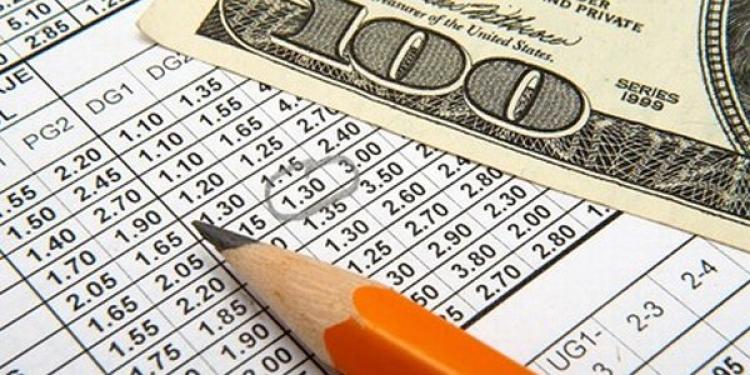What Are The Odds Of That Happening? A Guide To Sports Betting
Posted: July 11, 2014
Updated: October 4, 2017

A simple beginners guide to sports gambling from odds to accumulators, from place bets to each-way wagers
Novices to sports betting are often intimidated by the swirling mass of numbers and names that comprise the world of gambling on sporting events. There are the odds, the different types of bet, the different things you can bet upon and indeed the whole vexed issue of form and news. Sports betting obviously has many an element of luck about it, but it isn’t all luck, some of it is knowledge and skill.
Now in the USA they’ve so many varieties of bet that as a European I find myself wondering if they made it overly complex on purpose to put people off gambling as an addition to the somewhat harsh US gambling laws. The last time I discussed covering the spread with someone I was putting cheese on a Marmite sandwich, not talking about the score of a basketball game.
Thankfully in the UK things are great deal more straight forward, probably as a result of the legalization of gambling back in 1961 bringing it all out into the open. This means that whilst there’s few choices of bet the actual system of odds and wagers is far easier to understand for a novice, and these days with so many online sportsbooks it’s easy enough to find one you can use.
The British like gambling on football, greyhounds and horses. We’re going to use that last one as our example today although the principles apply equally to all other sports betting, albeit with fewer oats and less horse shit. So here’s a quick guide to betting on sports in the UK or on any UK based website, it is by no means definitive but it’ll get you started.
Win, Place Or Each-Way?
Sports betting for the beginner
• What do the odds actually mean?
• Is an each-way bet a good idea?
• Should I read the gambling news?
First off you’re going to have to decide what you believe your horse can achieve. Is it going to win? Just come in the top 3? Choosing the right bet to make will be dependent upon your view. Obviously if you think you’ve a winner you put your money on “to win”, but if you think it’ll just come in the top 3 you’ll want to put a “to place” bet on. Different races have different place rules, but usually it’s just the first three finishers that win.
Obviously you’ll get less of a return on a place bet than a win bet, and even less on an Each Way bet where your stake is divided equally between both a bet on a win AND a bet on a place. So bet 10 each way on a horse that comes 2nd and you’ll still get a return on 5 of what you wagered. If you’re not sure of form or past performance this can make lots of sense.
Purists, of course, would say that only “to win” bets offer the right odds to make it worthwhile but then they’ve years of experience that jade them so you make your own decision and put your money down.
When you do, you’ll be doing so at a certain level of “the odds” that is to say the amount the bookie will pay up if you win based on the amount of your stake.
10-1 odds means for every quid you wager you’ll get back 10, plus your stake. Place bets will have lower odds than Win bets, and Each Way bets will reward you less because your stake is split between two wagers disguised as one. Understanding the odds is all important to gambling on sports, as is knowing what causes them to change. Being informed about the sport in question (in this case horse racing) can be key.
Accumulation Of Wealth
Now it would be nicely simple if that were all there were to it. Yes you’d have to understand the odds mathematics a bit, but that’s really not all that difficult, and getting used to the win, place, each-way choice can take time, however it’s when one goes beyond the single wager than things start to become seemingly bizarre. Yes, that’s right, you can place a wager not just on a single race but upon a series of them.
A double is where you bet that you haven’t just chosen the winner of this race, but the winner of another race as well. Obviously the odds on these are more rewarding because it’s more unlikely you’ll be able to do it. The winnings from the first race are automatically gambled on the second race so despite a small stake one can win big. Of course if either horse loses you lose the entire wager.
As you might imagine a treble is precisely the same only with THREE races all requiring a favourable result for you to gain a return. Once again the chances against you winning are higher so the odds will reflect this and for a small stake a treble win can pay off proportionately quite a bit. You will not be surprised to learn there is even a step beyond this. In the UK they’re called accumulators.
This is any bet on four or more races all of which must win to provide a return. The odds against winning are staggering but so are the returns if you do. A legendary example of this involved someone making a 100 dollar wager on ten doubles, ten trebles, five four-fold bets plus another accumulator. The odds against him winning were astronomical, but he did win, he won $13.4 million making gambling news around the world and with opportunity like that around it would be silly to be intimidated into not taking part, right?
Read more of our guide to sports gambling.












